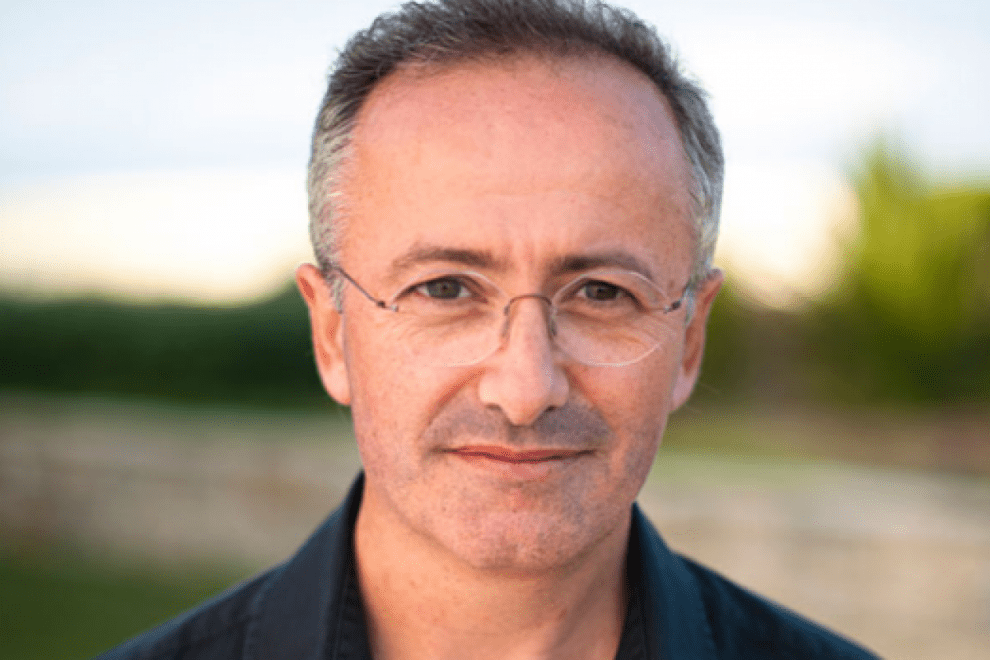Supporting those we love through end of life is not easy. There is no single answer to how best to do it. What we can do, however, is try to ensure that they are do not suffer unnecessarily, and as Andrew Denton explains, the single most important issue here is for them to have the comfort of choice.
I watched my father die painfully in hospital almost two decades ago, and that is the main reason I have established Go Gentle Australia – to work towards a change in the law so that Australians can have greater choice in how and when they die, just as people in so many overseas countries can already do.
Over the last few years, as I’ve travelled around Australia and to countries where laws to assist people to die have existed successfully for many years, I’ve noticed a dreadful contrast.
In countries that allow such laws, people who are dying of irreversible diseases have the choice of ending their suffering, and farewelling those they love, on their terms, not according to the ethics and beliefs of others.
In Australia, where no law exists, many elderly people faced with the same irreversible diseases are either dying painfully, despite the best efforts of palliative care, or are choosing to end their lives violently and alone. Those they love feel powerless to help.
We have one of the best palliative care systems in the world, and we should be proud of it. But for a small percentage of patients, even the best palliative care cannot ease the pain or distress – and the suffering at the end of life can be savage, traumatising patients and their families alike.
Not that this is a competition between palliative care and assisted dying! In countries where both exist, there have been measurable improvements in palliative care. The two exist side by side as meaningful end of life choices.
In Victoria, a cross-party committee of the state’s Upper House conducted an exhaustive 10-month-long inquiry into end-of-life issues including a law on assisted dying, culminating in a recommendation to do just that.
Currently, the legal framework is being determined, and will be presented to that state’s parliament in the second half of the year.
The legislation will include strong checks and balances, and would be an option available to adult Victorians who likely have only a short time to live and who suffer from a serious and incurable illness.
The most important feature is that the law will be completely voluntary: for patients, doctors and also institutions. No one is forced to take part and there will be strong safeguards to ensure this.
New South Wales has also taken a step closer to allowing terminally ill people to voluntarily end their lives, with a draft bill with cross-party support being released.
Like the Victorian legislation, this bill will also face a conscience vote when it’s finalised and then introduced to state parliament.
And at the time of writing the Tasmanian parliament was also due to debate a bill.
Overwhelming community support
Numerous surveys have found around 75% of Australians support a law for voluntary assisted dying. Another important finding is that only 10 – 12% of Australians oppose it as a legal option.
There is no social issue in the last 20 years on which public support is higher.
By its very nature the issue matters most to those of us over 50. We are either confronting illness ourselves or we have had the experience of caring for relatives who might not have had a comfortable death.
In my research, I’ve witnessed first hand the overwhelming support publicly, politically, and medically that exists in countries where these laws are already in effect.
Unfortunately, many politicians in Australia have not educated themselves sufficiently to understand how such laws work and why repeated independent inquiries have found them to work safely in jurisdictions where they do exist.
Stand up and assert your rights
To change this requires what change usually requires, namely, for enough people to stand up and assert their rights. By that I don’t mean a “right to die”. As one Dutch doctor said to me, “death is not a right, death is a fact at the end of life”.
It’s time for your local state MP to know what you want. Your experience and your wisdom will carry huge weight, and it will make it very hard to ignore this issue if you show in numbers that it matters to you – and why.
At Go Gentle Australia, we believe this issue sits above politics. Whatever a politician’s personal preferences are, he or she has a duty to respect your right to have a choice.
Change won’t happen without you, and you have the power to make it happen.
If you live in Victoria and you want to make your voice heard, please go to our campaign website www.stopvictorianssuffering.org.au.
Alternatively you can contact us via email or phone: email contact@gogentleaustralia.org.au, mobile 0468 464 360.
Our campaign already has strong support from a broad cross-section of our community, including nurses, doctors, lawyers, those who’ve lost loved ones to a painful death, and people living with debilitating degenerative diseases such as MS, MND and Huntington’s Disease.
In the end it’s your choice. Many people who qualify for life-ending medication do not use it. It’s there if they want it. Just knowing it is there gives people a sense of control, and this in itself is a huge comfort both to us and to those we love.
And if we don’t act to bring about the law we want then we suffer the consequences – literally.
Betty Ogle – 84 years old and pro-euthanasia“Can I have an injection now?” Betty asked her very dedicated G.P. at her bedside – “No” was the answer (Current Medical Practice is not allowed to do this.)
“Can I have an injection now?” Betty then asked when the lovely palliative care nurse visited – “No” was the answer again (Victorian Palliative Care is not legally allowed to do this)
“I have had enough and want it to be all over!” said Betty
“Can I stop eating/drinking then?” Betty asked as she lay emaciated and confined to her bed with terminal end stage pancreatic cancer. “Yes” was the answer but it still took her a few weeks of decline until she eventually died.
ABOUT
Andrew Denton is one of Australian media’s genuinely creative forces with a career covering radio, television and film. He is the creator of the podcast series Better Off Dead, investigating why good people die bad deaths in Australia and is the founder of Go Gentle Australia.
website: gogentleaustralia.org.au





















Add Comment